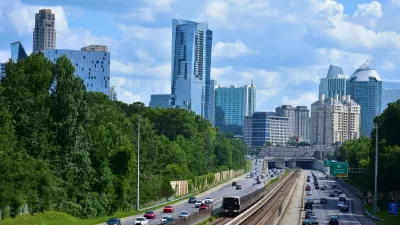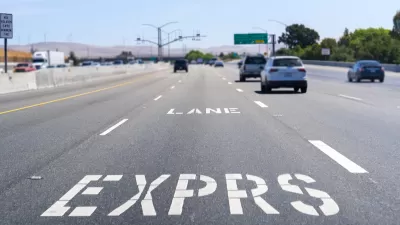The Federal Highway Administration and the Federal Transit Administration are considering reforms that would enact a sweeping reform of metropolitan planning organizations (MPOs).

Alexander Bond updates the ongoing process at the FHWA/FTA to update a rule regarding the consolidation of metropolitan planning organizations.
The proposed rule, titled the "Metropolitan Planning Organization Coordination and Planning Area Reform" rule, was first announced in June. The rule "would essentially force over 140 MPOs to consolidate with nearby MPOs that serve the same Census-defined urban area," according to Bond.
Initial public comments sparked enough interest to cause the FHWA and FTA to extend the comment period, during which the federal agencies are seeking feedback on three specific areas of concern: "(a) under what circumstances would multiple MPOs be allowed to serve a single urban area; (b) the impact of requiring one set of plan documents; and (c) the forecasted cost of the proposed rule."
According to Bond, the new round of public comments signals a "softer line" on MPO reform. The Eno Transportation Weekly has been tracking the proposed rulemaking since the summer, with previous guest columns by Barry Seymour, executive director of the Delaware Valley Regional Planning Commission, and Steve Heminger, executive director of the San Francisco Metropolitan Transportation Commission.
FULL STORY: MPO Planning Area Rule Reopens for Comments, Signaling a Softer Line on MPO Consolidation from USDOT

Manufactured Crisis: Losing the Nation’s Largest Source of Unsubsidized Affordable Housing
Manufactured housing communities have long been an affordable housing option for millions of people living in the U.S., but that affordability is disappearing rapidly. How did we get here?

Americans May Be Stuck — But Why?
Americans are moving a lot less than they once did, and that is a problem. While Yoni Applebaum, in his highly-publicized article Stuck, gets the reasons badly wrong, it's still important to ask: why are we moving so much less than before?

Using Old Oil and Gas Wells for Green Energy Storage
Penn State researchers have found that repurposing abandoned oil and gas wells for geothermal-assisted compressed-air energy storage can boost efficiency, reduce environmental risks, and support clean energy and job transitions.

Greening Oakland’s School Grounds
With help from community partners like the Trust for Public Land, Oakland Unified School District is turning barren, asphalt-covered schoolyards into vibrant, green spaces that support outdoor learning, play, and student well-being.

California Governor Suspends CEQA Reviews for Utilities in Fire Areas
Utility restoration efforts in areas affected by the January wildfires in Los Angeles will be exempt from environmental regulations to speed up the rebuilding of essential infrastructure.

Native American Communities Prepare to Lead on Environmental Stewardship
In the face of federal threats to public lands and conservation efforts, indigenous groups continue to model nature-centered conservation efforts.
Urban Design for Planners 1: Software Tools
This six-course series explores essential urban design concepts using open source software and equips planners with the tools they need to participate fully in the urban design process.
Planning for Universal Design
Learn the tools for implementing Universal Design in planning regulations.
Heyer Gruel & Associates PA
City of Moreno Valley
Institute for Housing and Urban Development Studies (IHS)
City of Grandview
Harvard GSD Executive Education
Salt Lake City
NYU Wagner Graduate School of Public Service
City of Cambridge, Maryland




























